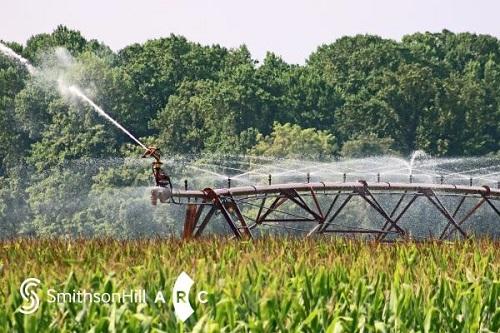Flooding, water-logged fields, delayed planting and the driest Spring on record: 2020 has been an unprecedented year for water in the UK.
According to the UK Irrigation Association, AgriFood as the UK’s largest manufacturing sector is under pressure, “domestic production of high-quality fruit and vegetables is at risk because of increasing competition for limited water resources and climate variability." Long-term strategies to ensure the future of food production will be needed; Farmers and farming bodies are reviewing on-farm drought practices as we enter the main growing season. In addition, the Irrigation Strategy for UK Agriculture and Horticulture is currently being consulted on across the industry.
But water is a global issue: over 1.7 billion people globally are currently living in river basins where water use exceeds ability to regenerate supply, and by 2025, 50% of the world’s population will be living in water-stressed areas. To address this one of the UN’s Sustainable Development Goals is to ensure access to clean water and sanitation for all.
With agriculture accounting for 70% of water consumption globally, huge impact can be made with technology adoption by the industry.
AgriTech is stepping up to bat.
Precision irrigation
Addressing the 396 trillion gallons of water wasted each year in agriculture, precision irrigation - using IoT and sensor technology - is by far the largest vertical in the industry, with the biggest potential impact. Cambridgeshire AgriTech company DeltaTDevices have developed soil-sensor technology that allows farmers to track soil moisture, only irrigating when needed. Together with precision irrigation tools from Netafim, they are pushing the boundaries of smart irrigation for farmers.
Water purification and supply
In both off-grid applications and developing countries, water purification and supply enable public health, food supply and economic growth. Cambridge-based Majicom has developed solar powered water purifiers, creating decentralised sustainable water ecosystems for application in developing countries. Meanwhile, Watergen have developed generators to create water from air with applications both in emergency deployment and in developing countries.
Health of watercourses
Preserving or restoring the health of our watercourses is another key challenge, especially as flooding, pesticide and fertiliser run-off can contribute to problems downstream. BlueGreen Water Technologies are tackling algal blooms which can turn bodies of freshwater into dead aquatic zones. Their solution uses nano-technology to change the treatment framework, ensuring water courses remain safe for those who rely on them.
With the effects of climate change and the demands of growing populations, #AgriWaterTech is only going to become more important in the future. SmithsonHill says: "We’d love to hear of other companies working in this important area – do contact us today!"
